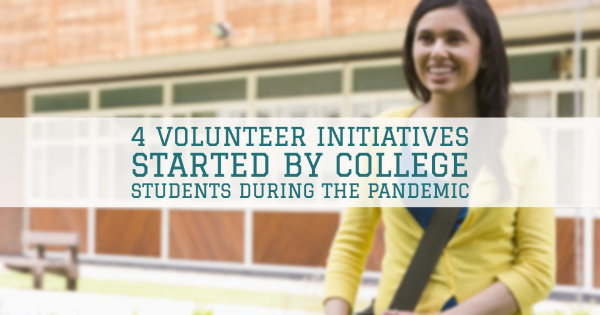
“A group of college students are volunteering” is a phrase that is not unusual, but during these unprecedented times, it’s one that has more weight than ever. From local childcare to interstate delivery programs, a group of college students are volunteering to make positive changes in their local communities. As with any time, volunteers are one of the most important assets to charitable organizations.
Now, more than ever, communities are looking to residents to help support those who need it the most. With economic hardships, stay at home orders, and a growing sense of isolation, some communities are at a loss as to how to help their residents. The good news is that not only are many communities noticing that a group of college students are volunteering, but college students are leading initiatives designed to provide support. When a group of college students are volunteering, there is a great sense of camaraderie and purpose, and the positivity that spreads to their communities is invaluable.
Difficult Times Upon Us

Celebrating an engagement, going to bachelor parties, or enjoying spring break are normal things college students and young adults look forward to, but with the pandemic, nearly all of these have been delayed indefinitely or celebrated virtually. Beyond the inability to celebrate in-person for health safety reasons, many young Americans simply do not have the financial resources that would allow them to participate.
Nearly 82% (81.5%) of millennials are in debt, many of them significantly so, and with the pandemic, financial hardships are more common than before. Jobs typically held by college students, like waiting tables or working retail and hospitality, have taken a major hit this year and have left many Americans, not just millennials, out of work.
With all of this going on, it is easy to get caught up in the negative. However, all over the country, college students are taking the time to help their communities.
These young people have given hope and comfort to their communities, and their volunteer initiatives have been a bright spot for many during the pandemic. College students are helping people in a number of ways, from teaching the elderly technological skills to improve their social life while safely staying at home to delivering groceries, medications, and other household essentials to those who are immunocompromised. From state to state, college students are taking it upon themselves to make changes in their communities.
The Importance of Volunteering
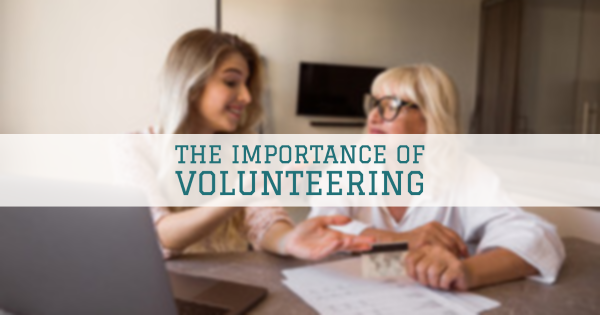
Volunteering is something many think of doing, but it’s not always acted upon. There never seems to be enough time or a financial situation may keep you from donating the amount you’d like to. But, did you know that volunteering can actually benefit your health? There have been numerous studies conducted that show volunteering helps reduce stress and boosts the satisfaction of one’s life. According to some studies, doing something good for someone else reduces tension-producing thought patterns and increases self-confidence.
Moreover, volunteering can give you a sense of purpose. With the demands of everyday life, particularly amidst a global pandemic, it is easy to get caught up in negative thought patterns and to be overwhelmed by stress. Volunteering helps give you a sense of purpose, which can be incredibly helpful in improving your mood.
During the pandemic, staying at home as much as possible has been encouraged, and while it is the safe and responsible thing to do, it can also be very isolating and lead to feelings of loneliness. Being part of an organization, even if you are only connected virtually, will remind you that you are not alone and that you matter.
As an added bonus, employers tend to look favorably on applicants with volunteer experience. Why? When a group of college students are volunteering, it shows that they are able to solve problems, are team players, and are familiar with working with all types of personalities. These skills can be invaluable in the workplace, so employers take notice of resumes that highlight volunteering.
Whether you know a group of appliance repair experts that can help community members maintain their homes during the pandemic or you have a car you are willing and able to use to deliver medications, volunteering helps your community and boosts your sense of personal satisfaction.
College Students Volunteer at Cancer Support Community of East Tennessee
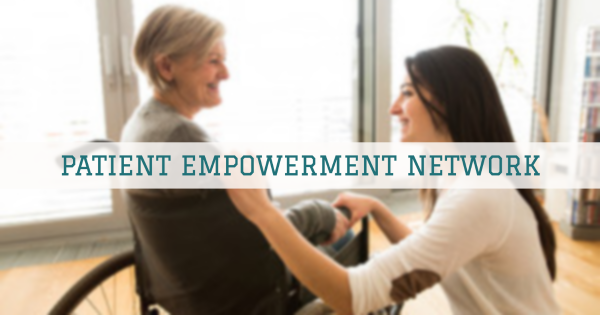
Inspired by her mother’s battle with cancer, Andrea Conners started an initiative designed to provide senior cancer patients with the skills they need to navigate their journeys. Speaking on her mother’s illness, Conners said, “She didn’t have the digital literacy skills she needed to be able to successfully navigate her journey.”
The Patient Empowerment Network’s free digital learning program pairs college students with patients to help them learn how to search the internet, connect with other patients and family members who may be far away. Students familiar with web design can help patients better advocate for themselves through online searches, such as helping them to find a delayed cancer diagnosis lawyer.
The need for a program like this is much greater with the current pandemic. Conners and a group of college students are volunteering their time to help patients find resources they can use to connect them to other people on a similar journey. Overall, the mission is to give confidence and comfort to older patients who may not be able to self-advocate along their cancer journey.
“It’s very overwhelming and oftentime they need to learn a whole new vocabulary. And, we know that patients who have that vocabulary – who are health literate – tend to be more a part of their treatment and therefore have better outcomes,” said Conners.
Patients enter the program knowing very little about current technology, but Conners said that “About five minutes in, everyone is laughing, taking selfies, and its really a wonderful thing to see.”
Whether you want to volunteer your time at a community center, hospital, or you can take the time to help a family member, sharing your knowledge of the internet and technology can go a very long way in helping people feel less isolated and more empowered.
Utah College Students Help State Throughout the Pandemic
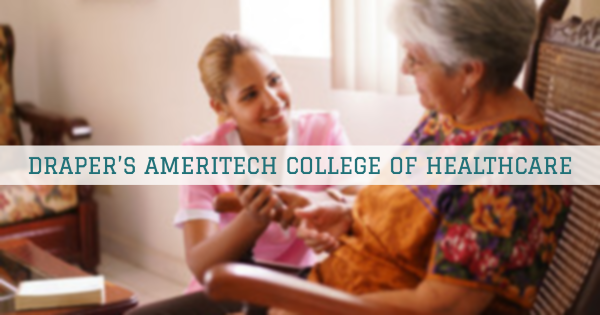
For many states and communities throughout the United States, volunteers have been an important source of help during the coronavirus pandemic. The Salt Lake City Health Department recently recognized more than 100 volunteers for over 15,000 hours of service. Many of these volunteers are college students from the University of Utah, Westminster College, and Weber State University. These schools, with students at Draper’s Ameritech College of Healthcare, a group of college students are volunteering to assist with drive-thru COVID-19 testing sites.
Speaking of student assistance in testing, Jill Dubbellman, Ameritech capstone instructor and MRC lead, says “Many of the students helped shape the protocols and procedures that we still follow today. Many of the students spend extra time trying to come up with ideas that would help improve the process and help the employees out.”
The Salt Lake City health department says that they would not have been able to provide as many tests as they did without the help of volunteers. The health department is immensely grateful for the volunteers and their service to the community, and the health department wanted to make sure these individuals got the recognition they deserved. Several awards, including the Presidential Volunteer Service Award and the Lt. Governor’s Volunteer Recognition Certificate, were given out during a recognition ceremony.
Even without recognition, many of the student volunteers know that being part of this team was an incredible opportunity to learn and practice their skills. Students often volunteer to help with other health programs, such as hearing services or blood drives, but as Seth Christensen, one of the student volunteers, says, “We knew we were in a once-in-a-lifetime situation here, and all we nursing students ever wanted to do was help in any way we could.”
Thomas College Student Starts Clothing Initiative

This year, a group of college students are volunteering to provide items for the Maine Children’s Home for Little Wanderers. Thomas College student Isabella Van Zandt said, “With college this year you can’t really get involved with the schools that much because of COVID, but it felt great that I was able to at least donate something to a great organization and kind of help out with kids.”
What started as a hobby turned into a volunteer initiative that many students at Thomas College participated in. Says Van Zandt, “I started making scarves but I had this yarn leftover and I couldn’t make an adult sized hat so I started making baby hats. I originally did start this knitting project around my sophomore year, however I didn’t really have the resources or know where I could donate them.”
Not knowing what to do with her knitted items, Van Zandt shared her idea with classmates at Thomas College and with her people from her former high school in Gorham. The resulting hats and bracelets were a great way to provide community child support, and students were enthusiastic about helping. Students at both locations helped her knit baby hats and make bracelets for the Maine Children’s Home for Little Wanderers, which works to help children and families in central Maine.
“It was awesome to see how much the community at Thomas College really got together and my high school how they got students to make bracelets, so I thought it was really great that people were able to get involved and wanted to be involved,” said Van Zandt.
With many Americans, college students included, facing difficult decisions like whether to buy groceries or seek professional heating solutions, charities and other community organizations have seen a decline in people’s ability to give.
Richard Dorian, executive director of the home said, “The number of donations have been down this year in terms of the volume of what people can generally offer, but people have still stepped up and it’s just been amazing the way people have donated and dropped off items.” This year, through the help of volunteers like Van Zandt the Maine Children’s Home for Little Wanderers will provide winter clothes and books to nearly 1,600 children.
Speaking to Van Zandt’s initiative, Dorian said “We’re just so proud of the number of younger people that have stepped up to say that they really want to make a difference.”
Two College Students Start Invisible Hands Delivery Service
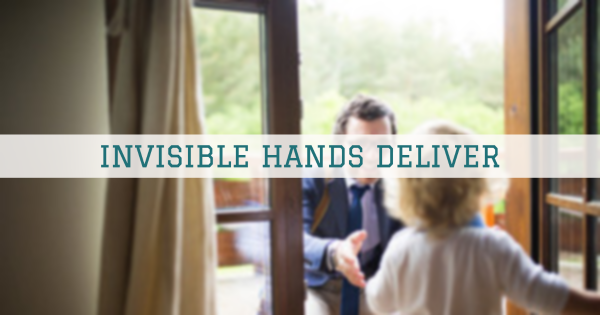
One of the most repeated phrases this year has been “stay home.” While the message is intended for everyone, elderly people and those who are immunocompromised or who have pre-existing conditions have an even greater motivation to not leave the house.
The problem with staying at home is that it can be hard to get what you need, so two college students in New York City sought to find a solution. A group of college students are volunteering to get food, medical supplies, and other deliveries to those most vulnerable to the pandemic. Out of their desire to help, Invisible Hands was born. In just a few days, there was immense support for the idea: In fact, days after the program was started, there were nearly 3,000 volunteers.
While Invisible Hands Deliver offers deliveries for many essential items, one of its main goals is to fight food insecurity, which has been greatly exacerbated by COVID-19. Invisible Hands Deliver is available in New York City, New Jersey, and Pennsylvania, with plans to expand to other locations including Los Angeles and Boston. Dropping off packages on patios or giving a friendly smile through a glass door may seem small, but the result can have a dramatic impact on both individuals and communities.
As the pandemic continues to ravage the health and livelihood of countless Americans, people are stepping up to help one another. In just these four stories alone, a group of college students are volunteering their time, supplies, skills, and knowledge to better their communities. If you feel inspired, reach out to organizations in your community to find out how you can help.
If you aren’t sure where to go or what to do, start with local charities and ask what they may need. You can also take a moment to call local churches or other places of public service to find out how to get involved. There’s a great likelihood that a group of college students are volunteering somewhere near you, and they could use your physical or financial help.

